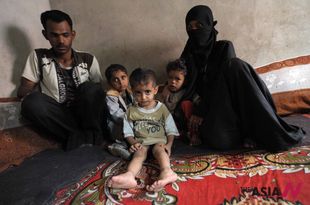S. Korea: Parliament passes bills to fight fine dust

South Korea’s parliament passed eight bills intended to better fight fine dust Wednesday as the country is struggling with its worst-ever particle air pollution. The legislation includes a revision to the disaster and safety management law to include a high density of particulate matter as a “social disaster.” Such a designation allows the government to use state funds and take extraordinary measures in response, prevention, and damage recovery.
Parliament approved seven other bills related to fine dust, including relaxation of regulations on the use of liquefied natural gas (LNG) vehicles and mandatory installation of air purifiers in schools. Currently, the use of LNG cars is permitted only by taxis, buses and rental cars or the disabled. But the revised law allows ordinary citizens to buy LNG cars, which emit less fine dust than diesel or gasoline-powered vehicles.
Fine dust air pollution has emerged as one of the most pressing issues here, prompting political parties to exercise rare bipartisanship. The country was choked by particulate matter for a record streak of seven straight days in early March.
The ruling Democratic Party (DP) and two opposition parties agreed last week to vote on the bills Wednesday and consider an extra budget to fight fine dust if the government draws it up. They called on the government to spend reserve funds swiftly to provide supplies, such as anti-dust masks, to the underprivileged. The parties also decided to send a delegation to Beijing to promote cooperation between the two countries in tackling fine dust, a large portion of which is believed to have blown in from China.
Political parties are keen to resolve the fine dust issue ahead of next year’s parliamentary elections as it could affect their public support ratings, given the issue’s direct impact on people’s health and welfare. President Moon Jae-in has ordered the government to take extraordinary measures to fight fine dust pollution. He called for interagency efforts last week, including the installation of high-capacity air purifiers in more daycare centers and schools. Moon also instructed government officials to work with China and called for his country to put forward its own response, such as the permanent shutdown of aged power plants that use fossil fuel.
In a related move, the president has accepted a proposal by an opposition leader to set up a pan-national body to discuss the reduction of fine dust. Former United Nations chief Ban Ki-moon is being tapped as the head of the proposed organization, given his role in the Paris climate accord in 2015.
(Yonhap)



